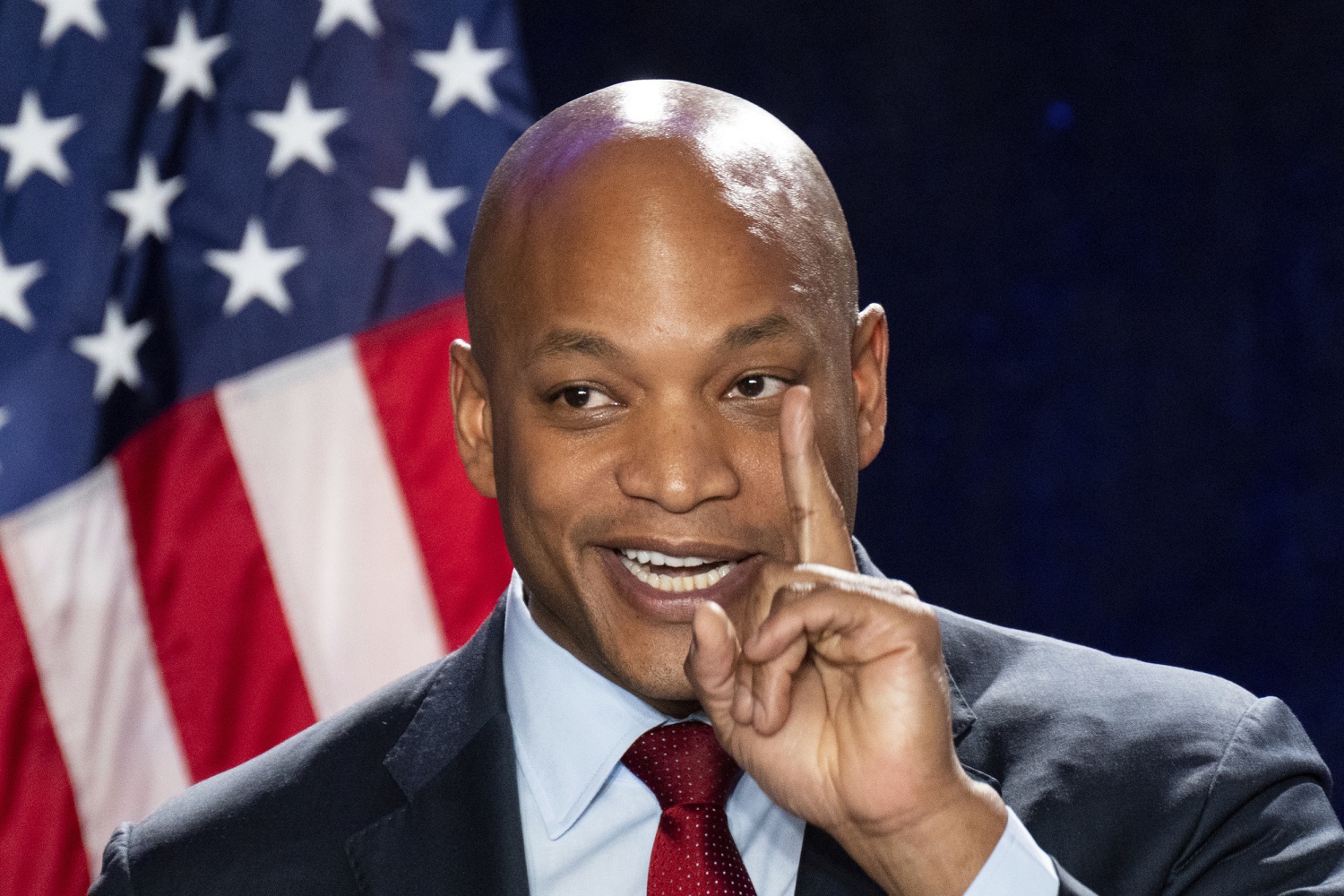Politics
Wes Moore: A Rising Star in the Democratic Arena Following Biden’s Exit

As the political landscape shifts with President Joe Biden’s unexpected decision not to run for reelection, the focus is squarely on rising Democratic voices, particularly Maryland Governor Wes Moore. For over a year, Moore has been a visible supporter of Biden, playing a crucial role in the Democratic campaign, from fundraising efforts to public appearances across pivotal states like North Carolina and Wisconsin.
Despite growing speculation among Democrats urging Biden to step aside, Moore maintained his steadfast support of the president. Even as his name surfaced in discussions concerning potential candidates for a Biden-less ticket, he has chosen to keep his focus on backing Biden’s administration until the very end.
Following Biden’s announcement, Moore expressed his admiration through a public statement, lauding the president’s commitment to the American populace. “President Biden has dedicated his life and career to serving the American people,” Moore stated. He emphasized Biden’s legacy of optimism and resolve, which, according to Moore, has helped shape the nation’s path.
While Moore’s statement did not directly comment on his support for future candidates, sources suggest that he may endorse Vice President Kamala Harris imminently. Biden’s endorsement of Harris as his successor has created an atmosphere of unity among Democratic leaders, with various influential figures rallying behind her candidacy as the Democratic nominee for the 2024 presidential race.
In light of accelerating support for Harris, questions arise about potential vice presidential candidates to accompany her on the ticket. Names such as Gretchen Whitmer from Michigan, Gavin Newsom from California, Andy Beshear of Kentucky, J.B. Pritzker from Illinois, and Josh Shapiro of Pennsylvania have been mentioned, yet Wes Moore’s name is among the newer entrants to this national conversation.
It is interesting to note that while several contenders have been highlighted, Moore often finds himself toward the lower end of the speculation radar. Polls have consistently shown another set of figures in stronger positions. Nonetheless, he has garnered attention in surveys focusing on his performance in battleground regions, where he appeared competitive against the likes of Shapiro, Whitmer, and U.S. Senator Mark Kelly of Arizona.
Despite his rising profile, Moore has not publicly indicated any desire to ascend to the vice presidential candidacy at this juncture. The Democratic National Convention is set to occur in Chicago from August 19 and is anticipated to resolve the nominations, though it remains uncertain whether the party will reach a consensus or engage in debates and votes during the period.
Even if Moore’s aspirations for a position on the 2024 ticket do not materialize, discussions around his future candidacy in 2028 or even 2032 are likely to persist. Should the GOP reclaim the White House in 2024, opportunities abound for Democrats like Moore to assert their bid in the subsequent cycle. Conversely, if Harris wins in 2024, she would likely seek another term in 2028, setting the stage for other hopefuls, including Moore, to aim for candidacy in 2032.
At the age of 54 during the 2032 elections, and potentially fresh off another gubernatorial term, Moore would still be positioned as a relatively youthful candidate aiming for the presidency.
Should Harris proceed as the Democratic nominee, it raises the question of whether Moore would continue his supportive role akin to the one he played under Biden. Would he forgo personal ambitions now to pave a smoother path for the future? As speculation unfolds in the coming days, these aspects of Moore’s political trajectory will start to clarify.
It’s important to recognize that Moore’s burgeoning reputation in national politics has developed relatively quickly. His journey began with his election as Maryland’s governor in 2022, where he notably prevailed against Republican candidate Dan Cox, who had been a supporter of former President Trump.
Within his early tenure as the governor, Moore quickly mobilized state resources in response to a structural disaster that affected Maryland, specifically the Francis Scott Key Bridge collapse. His leadership drew applause from colleagues within his party, showcasing his commitment to state welfare and responsiveness during critical situations.
Recently, Moore has also attracted attention for significant reforms, including measures to decriminalize marijuana possession and the cultivation of an accessible cannabis market. In addition, he has managed to secure legislative triumphs during his terms, with initiatives addressing housing laws and the state’s minimum wage
While he faces numerous challenges ahead, particularly with budgetary constraints looming large, Moore has articulated a cautious approach towards new taxes. His administration has seen pressing needs arise, particularly in funding healthcare and childcare programs as part of the state’s ongoing efforts to meet citizen needs effectively.
Before entering the political sphere, Moore was entrenched in philanthropic efforts as the executive director of the Robin Hood Foundation, an organization dedicated to anti-poverty initiatives. His background is complemented by a diverse career spanning investment banking, a brief stint at the U.S. Department of State, and service in Afghanistan as a captain in the U.S. Army. Educationally, Moore is distinguished as a Rhodes Scholar and holds a degree from Johns Hopkins University in Baltimore.
As discussions continue regarding the Democratic ticket and the future of the party leading up to the convention, the political maneuvers of Wes Moore will undoubtedly be watched closely, and his decisions in the coming days could shape not just his own political future, but also that of the Democratic Party at large.












